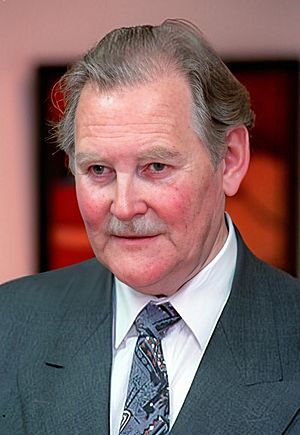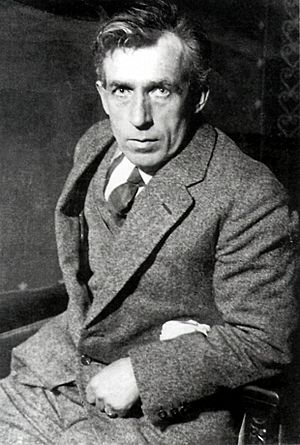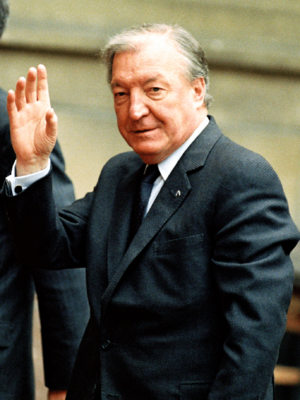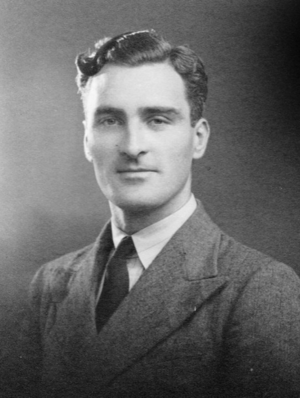Proinsias Mac Aonghusa facts for kids
Quick facts for kids
Proinsias Mac Aonghusa
|
|
|---|---|
 |
|
| Born | 23 June 1933 |
| Died | 28 September 2003 (aged 70) Dublin, Ireland
|
| Education | St. Ignatius College |
| Occupation |
|
| Known for |
|
| Political party | Labour Party |
| Spouse(s) | |
| Children |
|
| Parent(s) |
|
Proinsias Mac Aonghusa (English: Francis McGuinness; 23 June 1933 – 28 September 2003) was an important Irish journalist, writer, TV presenter, and activist. He grew up speaking Irish and became one of the most famous Irish language broadcasters and writers of his time. He worked for TV channels like RTÉ, UTV, and BBC, and wrote for many newspapers.
Influenced by his parents and family friends, Mac Aonghusa was interested in Irish republican and socialist ideas. He was very active in the Labour Party in the 1960s, even becoming its vice-chairman. However, he was later asked to leave the party in 1967 due to disagreements. After a political event called the Arms Crisis in 1970, Mac Aonghusa became a strong supporter of Charles Haughey. This friendship helped him later when Haughey became a powerful politician and gave Mac Aonghusa important jobs in state organizations. Mac Aonghusa wrote many books throughout his life, right up until he passed away.
Contents
Biography
Early life and influences

Proinsias Mac Aonghusa was born in Salthill, Galway, Ireland, in 1933. His father, Criostóir Mac Aonghusa, was a writer and an activist for the Irish language. His mother, Mairéad Ní Lupain, was a nurse and a native Irish speaker.
Proinsias was the oldest of four children and grew up speaking Irish as his first language. It is said he did not learn English until he was eleven years old. His parents believed in left-wing Irish republican ideas and were friends with other thinkers like Máirtín Ó Cadhain and Peadar O’Donnell. These friendships and his parents' beliefs greatly influenced him.
When he was ten, his parents separated. His mother moved to Dublin with his siblings, while Proinsias stayed with his father in Rosmuc. This was a small village in the Gaeltacht, an area where Irish is the main language. As a teenager, he went to Coláiste Iognáid (St. Ignatius College) in Galway City, which was a bilingual school.
Broadcasting and journalism career
After finishing school, Mac Aonghusa first worked as an actor at the Abbey Theatre in Dublin, performing in Irish language plays. In 1952, he joined Radio Éireann. He started as an actor, then read short stories, and later became a newsreader, presenter, and interviewer.
From the 1960s, Mac Aonghusa worked for RTÉ, UTV, and BBC television. In 1962, he began hosting "An Fear agus An Sceal" (The Man & his Story) on RTÉ. This was an Irish language show where he interviewed different famous guests about their lives. That same year, he won a Jacob's Award for the show, which he hosted until 1964.
His show sometimes caused discussion. Some interviews, where guests talked about how the government handled things during World War II, were not aired. Also, a program where he questioned Ireland's civil defense plans was stopped. Mac Aonghusa also faced issues when he criticized the government in his newspaper columns. Despite this, he continued to write, sometimes using a different name.
Later in the 1960s and 70s, Mac Aonghusa was mainly known for Féach, an Irish language current events show. He presented and edited this program. He left Féach in 1972 after a disagreement.
Political activism and career
Influenced by his early life, Mac Aonghusa became involved in left-wing republican politics as an adult. In 1958, he joined a group called the "1913 Club." This group aimed to combine Irish nationalism (love for Ireland) with socialism (ideas about fairness and equality in society).
In 1959, Mac Aonghusa wrote articles for the Irish Times newspaper. He strongly disagreed with the government's plan to change the voting system in Ireland. He argued that the current system, called single transferable vote (PR), was better because it gave smaller groups a voice. He believed that a different system, First past the post, would give too much power to political party leaders. In a public vote held in 1959, people agreed with Mac Aonghusa and kept the PR system. He considered his work to protect proportional representation his greatest political success.
In the Labour Party
In the 1960s, both Mac Aonghusa and his wife joined the Labour Party. They became very influential with the party's leader, Brendan Corish. In the 1965 Irish general election, Mac Aonghusa ran for the Labour Party but was not elected.
In 1966, Mac Aonghusa helped publish a book of speeches by Brendan Corish. He also became the Vice-Chairman of the Labour Party. Around this time, he also became active in the Wolfe Tone Society, a republican group. He suggested that republicans should join the Labour Party. In 1966, he also took part in protests against a group that wanted to stop Irish from being a required subject in schools.
Leaving the Labour Party
Mac Aonghusa's strong opinions and his disagreements with some parts of the Labour Party caused problems. He openly disagreed with the more traditional members of the party. In 1966, he supported the creation of the Young Labour League, a youth group that also challenged some party views.
When the youth league published a newsletter that criticized other party members, an investigation took place. Mac Aonghusa admitted he had funded the newsletter and written some parts. Because he refused to cooperate further, he was asked to leave the party on 12 January 1967. His wife, Catherine, also left the party.
Return to journalism and writing

After leaving the Labour Party, Mac Aonghusa focused again on journalism and writing. He also became very interested in helping the Irish language grow and in nationalist politics.
During a political event called the Arms Crisis in 1970, Mac Aonghusa supported Charles Haughey. This led to a strong friendship between the two men. Mac Aonghusa became one of Haughey's biggest supporters throughout his career, often defending him in his newspaper columns.
In the 1970s, Mac Aonghusa wrote several books about important figures in Irish republicanism, such as James Connolly, Patrick Pearse, and Éamon de Valera. From 1974 to 1975, he worked for the United Nations in Southern Africa with Seán MacBride. During this time, he helped set up a radio station in Namibia.
In the 1980s, Charles Haughey appointed Mac Aonghusa to the Arts Council twice. He also made him president of Bord na Gaeilge (1989 to 1993), which is a state body for the Irish language. This caused some discussion because Mac Aonghusa was already president of Conradh na Gaeilge, the main group that promotes the Irish language. This meant he was leading both a state body and a lobbying group for the same cause.
In 1991, when Haughey announced funding for an Irish-language television station (which became Teilifís na Gaeilge), Mac Aonghusa was very happy. He said Haughey would be remembered by Irish speakers for a long time.
In 1992, some people called for Mac Aonghusa to step down from Bord na Gaeilge. This was after he said that "every respectable nationalist" in West Belfast should vote for Sinn Féin's Gerry Adams in an election. He believed a defeat for Adams would be a "victory for British imperialism." However, he also advised voters in another area to vote for a different party. Mac Aonghusa strongly defended his views at a meeting of Conradh na Gaeilge.
In 1995, Mac Aonghusa still called himself a socialist. In a book he wrote about James Connolly, he stated that "the abolition of capitalism is essential if the great mass of the people in all parts of the globe are to be emancipated." He also said that the Stalinist governments of Eastern Europe were not truly socialist. Instead, he argued that the social democracies of Scandinavia (like the Nordic countries) were closer to what James Connolly had imagined as a socialist society. He also believed that the Irish education system and media did not properly explain Connolly's ideas.
Mac Aonghusa faced health challenges in his later years but continued to write many books. His last book, Súil Tharam, was published in 2001, two years before he passed away in 2003.
Personal life
In 1955, Proinsias Mac Aonghusa married Catherine Ellis. She was from Belfast and was a member of the Church of Ireland. For her married name, Catherine chose "McGuinness," which is the English version of Mac Aonghusa. Catherine McGuinness later became a Senator and a Judge in various courts. They had three children together.
 | Delilah Pierce |
 | Gordon Parks |
 | Augusta Savage |
 | Charles Ethan Porter |


